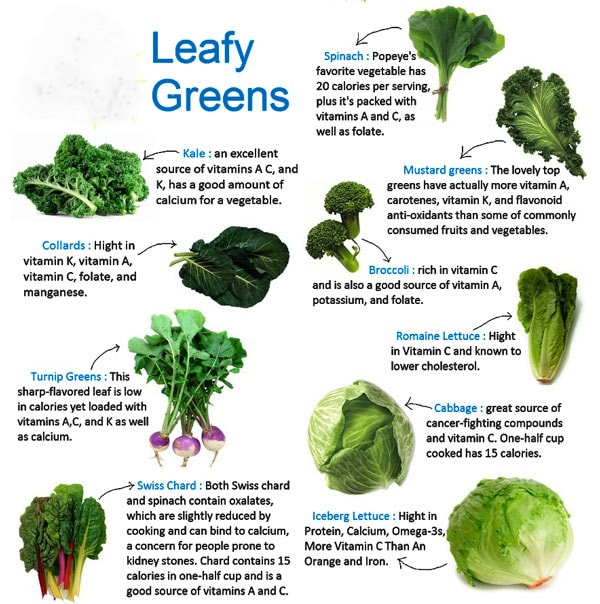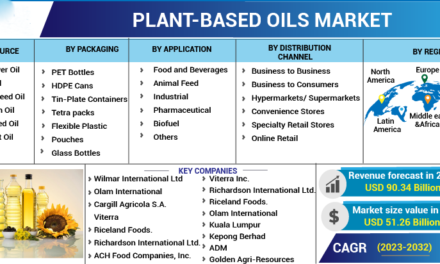Leafy vegetables are packed with essential vitamins, minerals, fiber, and antioxidants, making them an important part of a healthy diet. However, different types of leafy vegetables have unique nutritional profiles, offering various health benefits. Below is a comparison of the nutritional differences among several popular leafy vegetables:
1. Spinach
- Nutritional Highlights:
- Vitamins: High in Vitamin A (from beta-carotene), Vitamin C, and Vitamin K.
- Minerals: Rich in iron, magnesium, potassium, and calcium.
- Antioxidants: Contains lutein and zeaxanthin, which promote eye health.
- Fiber: Moderate fiber content.
- Health Benefits:
- Supports eye health and immune function due to its high Vitamin A and C content.
- Iron from spinach is non-heme, which is best absorbed when paired with Vitamin C-rich foods.
2. Kale
- Nutritional Highlights:
- Vitamins: Very high in Vitamin K, Vitamin A (from beta-carotene), Vitamin C.
- Minerals: Contains calcium, magnesium, and potassium.
- Antioxidants: Rich in flavonoids, carotenoids, and glucosinolates, which have anti-inflammatory and anti-cancer properties.
- Fiber: High fiber content, promoting digestive health.
- Health Benefits:
- Great for bone health due to its high Vitamin K and calcium content.
- The high fiber content aids in digestion and helps regulate blood sugar.
- Contains powerful antioxidants that support detoxification and lower the risk of chronic diseases.
3. Lettuce (Romaine)
- Nutritional Highlights:
- Vitamins: High in Vitamin A, Vitamin K, and some Vitamin C.
- Minerals: Contains potassium and small amounts of calcium and magnesium.
- Antioxidants: Contains beta-carotene, lutein, and zeaxanthin.
- Fiber: Moderate fiber content.
- Health Benefits:
- Low in calories, making it ideal for weight management.
- High in water content, which supports hydration.
- Beta-carotene and lutein support eye health.
4. Arugula (Rocket)
- Nutritional Highlights:
- Vitamins: High in Vitamin K, Vitamin A, Vitamin C, and some folate.
- Minerals: Good source of calcium, potassium, and magnesium.
- Antioxidants: Rich in glucosinolates, which have anti-cancer properties.
- Fiber: Moderate fiber content.
- Health Benefits:
- Known for its detoxifying and anti-inflammatory properties.
- Supports heart health due to its high levels of antioxidants and anti-inflammatory compounds.
- High in Vitamin K, which is important for blood clotting and bone health.
5. Swiss Chard
- Nutritional Highlights:
- Vitamins: High in Vitamin A, Vitamin C, Vitamin K, and folate.
- Minerals: Excellent source of magnesium, potassium, and iron.
- Antioxidants: Contains betalains and flavonoids, which have antioxidant and anti-inflammatory effects.
- Fiber: High fiber content.
- Health Benefits:
- Supports heart health due to high potassium content.
- Helps regulate blood sugar and supports digestive health with its high fiber content.
- High Vitamin K content promotes bone health and reduces the risk of osteoporosis.
6. Collard Greens
- Nutritional Highlights:
- Vitamins: Very high in Vitamin K, Vitamin A (from beta-carotene), and Vitamin C.
- Minerals: Good source of calcium, magnesium, and potassium.
- Antioxidants: Rich in carotenoids and flavonoids, supporting anti-inflammatory effects.
- Fiber: High fiber content.
- Health Benefits:
- Great for maintaining bone health due to high Vitamin K and calcium.
- Supports detoxification and reduces the risk of chronic diseases with its antioxidants.
- Helps with digestive health and weight management due to its fiber content.
7. Mustard Greens
- Nutritional Highlights:
- Vitamins: Very high in Vitamin K, Vitamin A, Vitamin C, and folate.
- Minerals: Contains calcium, magnesium, and iron.
- Antioxidants: Rich in glucosinolates, which may help protect against cancer.
- Fiber: Moderate to high fiber content.
- Health Benefits:
- Provides anti-inflammatory and anti-cancer benefits due to high levels of glucosinolates.
- Supports heart health and detoxification.
- High in Vitamin K, promoting bone health and aiding in wound healing.
8. Beet Greens
- Nutritional Highlights:
- Vitamins: High in Vitamin K, Vitamin A, Vitamin C, and folate.
- Minerals: Contains iron, calcium, and magnesium.
- Antioxidants: High in beta-carotene and lutein.
- Fiber: High fiber content.
- Health Benefits:
- Supports eye health with high levels of lutein and beta-carotene.
- Iron content helps with blood health and may prevent anemia.
- Supports bone health with high Vitamin K and calcium.
9. Bok Choy (Chinese Cabbage)
- Nutritional Highlights:
- Vitamins: Excellent source of Vitamin A, Vitamin C, Vitamin K, and folate.
- Minerals: Good source of calcium, potassium, and magnesium.
- Antioxidants: Contains beta-carotene and flavonoids.
- Fiber: Moderate fiber content.
- Health Benefits:
- Supports bone health due to high calcium and Vitamin K content.
- Rich in antioxidants, promoting immune function and skin health.
- High Vitamin C content supports immune health and collagen formation.
10. Watercress
- Nutritional Highlights:
- Vitamins: Very high in Vitamin K, Vitamin A, Vitamin C, and folate.
- Minerals: Contains calcium, iron, and magnesium.
- Antioxidants: Rich in flavonoids and phenolic compounds.
- Fiber: Moderate fiber content.
- Health Benefits:
- Known for its cancer-fighting properties due to high levels of antioxidants and glucosinolates.
- Supports cardiovascular health and bone strength with its high Vitamin K and calcium content.
- Aids in detoxification and reduces inflammation.
Conclusion
Leafy vegetables are nutrient-dense and contribute significantly to health. While all leafy greens provide essential vitamins and minerals, each has unique strengths in terms of specific nutrients and health benefits. For example, kale and collard greens are particularly high in Vitamin K and calcium, while spinach offers a good source of iron and antioxidants. Arugula and watercress stand out for their cancer-fighting properties due to glucosinolates. Consuming a variety of these vegetables ensures a broad spectrum of nutrients, contributing to overall health and well-being.
Hashtags
#EatYourGreens #VeggiePower #CleanEating #PlantPowered #HealthyHabits #NutritionGoals #WellnessJourney #RealFood #FarmToTable #GardenToPlate #NourishYourBody #VeganLife #BalancedDiet #GoodForYou #FreshProduce #EatPlants #FuelYourBody #HealthyChoices #GreenEating #NutritionEducation









